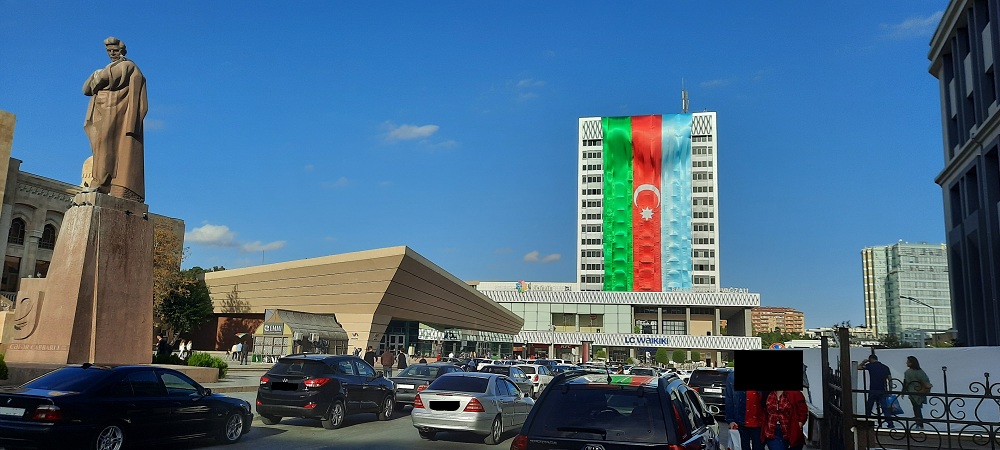The tragedy of Jan. 20, 1990, also called Black January, was an “important turning point” for Azerbaijan which proved that the nation’s striving for liberty and independence was irreversible, according to Azerbaijan’s envoy to Turkey, Anadolu Agency reported.
“It led us to be more united and more determined to make our country the best and to get what we deserve — independence,” Khazar Ibrahim told Anadolu Agency, referring to the violent crackdown, massacre of more than 130 people and wounding of hundreds of civilians by the Soviet army in the capital Baku and surrounding areas on the eve of the country’s independence.
Marking the 31st anniversary of the tragedy and remembering the violence Azerbaijan witnessed prior to the breakup of the Soviet Union, Ibrahim said the events of Jan. 20 are regarded as the rebirth of the country, which in 1918 first gained independence that was later stamped out in 1920, when the country became part of the Soviet Union.
On the night of Jan. 19-20, under direct instructions from Soviet leader Mikhail Gorbachev, the State Security Committee and Ministry of Internal Affairs entered Baku and nearby regions, massacring the civilian population using heavy military equipment and other weaponry.
Mass arrests accompanied the illegal deployment of troops and subsequent military intervention.
“It [the tragedy] has also changed us individually. Those people who went through those days have changed dramatically, including myself personally,” he recalled.
“Actually, it’s not a secret anymore that the real rationale behind the Black January tragedy was the desire by the Soviet leadership to calm down, to suffocate the striving of the Azerbaijani people for liberties, rights and independence,” he said, adding Gorbachev did not hide his “negative inclination” towards Azerbaijan.
The Soviet Army’s massacre on Jan. 20 – now National Mourning Day – completely shook Azerbaijanis’ confidence in the USSR, accelerating the process leading to the country’s independence.
“And the fact that there was an indiscriminate overwhelming reaction to people’s rights, which was actually in the constitution of the Soviet Union, cannot be explained by anything else but by hatred, by the desire to keep the Soviet Union afloat,” the envoy said.
He emphasized that the “hatred” was also influenced by the Armenian advisors who had lobbied Gorbachev for a long time, not only on the Jan. 20 issue but also on many other issues regarding Azerbaijan, in a negative way.
Azerbaijanis refer to Black January as a day of sorrow, but at the same time, as a day of pride, because the country’s heroes who perished laid the groundwork for the state’s independence.
